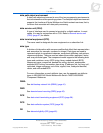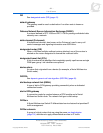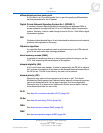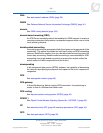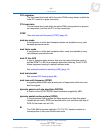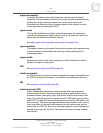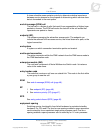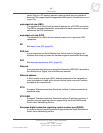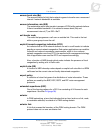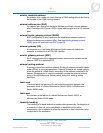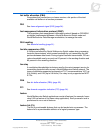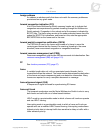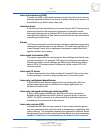
- 48 -
List of terms
Nortel Multiservice Switch 7400/15000/20000
Terminology
NN10600-005 7.2S1 Standard
PCR7.2 and up March 2006
Copyright © 2006, Nortel Nortel Confidential
A class scheduler uses emission priority to determine relative importance
between service classes for the purpose of determining which service class
data is forwarded to the next queue.
end of message (EOM) cell
The last cell in a series of cells that result from segmentation of higher-layer
packets or frames. The EOM cell marks the last cell in the cell series that
represents one packet or frame.
endpoint (EP)
The software managing the subscriber access point. The endpoint can
include the software for the access service, the virtual channel or path, or the
logical connection.
end system
A system on which connection termination points are located.
end-to-end connection
The entire connection within the PNNI network from the PNNI source node to
the PNNI destination node.
enterprise module (EM)
The root-level component of Nortel Multiservice Switch node. Its instance
value is the node name.
entry border node
The node that receives a call over an outside link. This node is the first within
a peer group to see the call.
EOM
See end of message (EOM) cell (page 48).
EP
1 See endpoint (EP) (page 48).
2 See emission priority (EP) (page 47).
EPD
See early packet discard (EPD) (page 46).
equipment sparing
Switching service functionality from failed hardware to equivalent standby
hardware. For CPs and FPs, one-for-one sparing enables a spare processor
card to stand by for an equivalent single main processor card. One-for-n
sparing enables a spare processor card to stand by for “n” main processor



